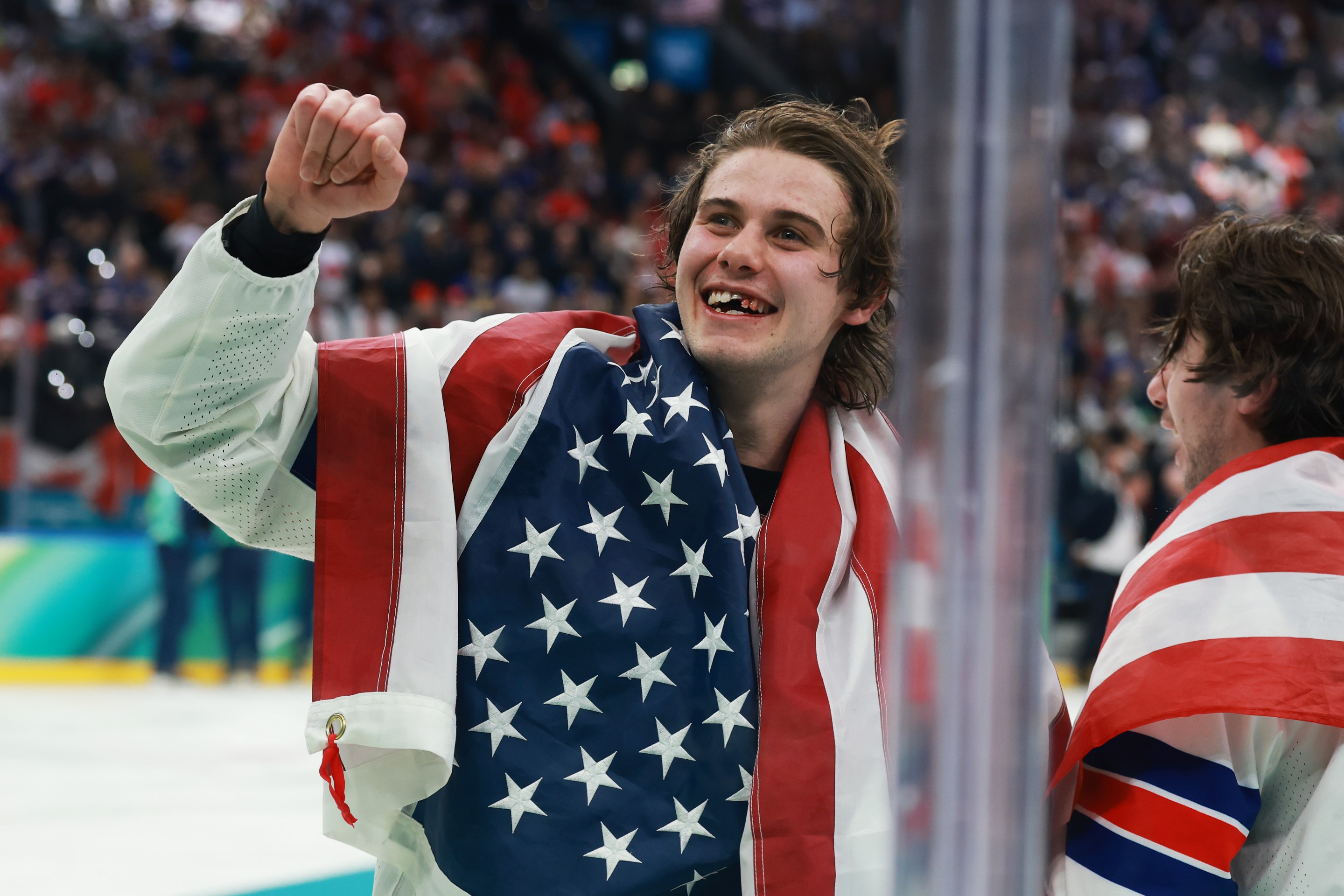There’s a dilemma near the end of Iron Duke. The titular character in sportswriter John R. Tunis’s 1938 novel has to decide whether to run in the season-ending intercollegiate track meet; all of Harvard is consumed by his decision, and the Crimson student newspaper writes an editorial. Tunis, perhaps inserting himself into the text just a bit, gives a summary:
Then the Crimson appeared with an editorial on the subject. It was a real Crimson editorial in which for the first hundred words the writer explained the duty which the Duke owed to the coach and the team, and in the next hundred explained that Harvard was a place where a man did as he chose, and then ended with a couple of hundred words completely befuddling the reader who might wonder just where the Crimson stood in the matter.
This is a classic description of a type of newspaper editorial that still exists today. Take the Washington Post. There has been quite a bit of consternation over the paper’s opinion pages recently, dating back to when Post owner Jeff Bezos spiked an endorsement of Kamala Harris last year. In February, Bezos issued a new directive that the editorial page would, every day, write in support of “personal liberties and free markets.” His memo to staff continued: “We’ll cover other topics too of course, but viewpoints opposing those pillars will be left to be published by others.” Opinion editor David Shipley quit and Adam O'Neal, from The Economist, replaced him. “We’re also going to be stalwart advocates of free markets and personal liberties,” O’Neal said in a video. “We’ll be unapologetically patriotic, too,” A notably large number of Post opinion writers have since left the paper.
In a vacuum, the phrase “unapologetically patriotic” is complete fucking nonsense. In the context of this current moment in the history of the Post and the country as a whole, it implies something like “we will act as a mouthpiece for the Trump administration.” It is worrisome. But a few months into O’Neal’s tenure, it’s clear at least that the Post plans to continue the great American journalistic tradition of editorials that use several hundred words to say absolutely nothing. (Unlike my stories, the Post doesn’t even have jokes.)
I realized this when the Post dropped a remarkable weekend editorial that ran under the headline “Ready for some football.” The headline was appropriate, because this was more or less a dull adaptation of Hank Williams Jr.’s former Monday Night Football theme song that didn’t mention Frank, Al, or Dan. In fact, it barely mentions anyone! It's more about the idea of football as a thing that is on TV during the weekends, and also how good it is to watch it. The editorial is unapologetic in staking out this position.
A familiar rhythm returns to American life this weekend. The razzle-dazzle of professional football is back.
Heck yes! I love razzle-dazzle. Nothing gets me more excited than things like end-arounds, flea flickers and, if we’re really lucky, a hook-and-lateral. If that sounds patriotic of me, know that I will not be apologizing for it.
We didn’t realize how much we missed the National Football League until the regular season kicked off Thursday night in Philadelphia, but nothing compares to a full slate of Sunday games.
Great. I agree again. As much as I liked seeing the Eagles beat the Cowboys on Thursday, I like it best when they play on Sunday at 1 p.m. ET. I can watch the Birds, check game scores and my fantasy team during commercials, and then watch two more games afterward! I assume they’ll be getting to the razzle-dazzle next, because this is still mostly about how the games are on TV on the same day every week. I’d love a full paragraph about flea flickers.
Millions of Americans gather around screens or shuffle into stadiums, drawn by the irresistible pull of a game that is at once brutal and beautiful, precise and physical. There are no guarantees. Rookie quarterbacks who were hotshots in college flame out in the NFL. Head coaches with Super Bowl rings lose their edge. That is part of the appeal. Anything can happen.
You could say this about pretty much any sport. Is football more beautiful and brutal than, say, boxing? Does any sport have guarantees? Even in the scripted sports, sometimes the 1-2-3 Kid beats Razor Ramon. Coaches are unsuccessful in most sports. Anything can happen in the pro wrestling, too.
For a few hours each week, the country huddles together. Nothing else in the culture commands as much attention across race and class. More than just a game, football is a civic ritual. Parents pass down traditions and rivalries to their children. In an era of disruption and dislocation, football provides a sense of place and cause for local pride.
This is still incredibly generic, but as God as my witness I did not expect this editorial about football to turn into one of those “this event shows that if we just put aside our differences we can all make the world a better place” editorials. Usually those are about something like a community coming together after a tragedy; in this case, it’s about teaching your kids how to jump off the roof of a decommissioned school bus through a folding table in a parking lot while a bunch of guys in Matt Milano jerseys yell “Let’s go” at each other.
America’s game is being embraced far beyond our borders. A game Friday night between the Chargers and the Chiefs in São Paulo, Brazil, illustrated American soft power. The cheering from the packed stands needed no translation.
It is true that the NFL has developed a small but real following in Brazil. But also, this is an incredible example of “American soft power.” The people of the world hate our foreign policy, but generally love our popular culture. Hollywood stars are global stars. American musicians have fans all around the world. American football is way down on the list of exports that have captivated Earth.
Football blends grit and grace. The elegance of a perfect spiral. The strategy of a two-minute drill. The guts of going for it on fourth down. The kicker fighting a bad case of the yips. The coach’s pep talk at halftime. The second-string quarterback rising to the occasion after a season-ending injury for the starter. The surprising storyline. The snowy playoff game.
Coaches can easily script their first 15 plays, but they cannot script everything that happens over 60 minutes. Because the other team gets to adjust. It is the uncertainty, the possibility, that keeps us coming back for more.
The more I read, the less I think I like football. The fucking coach’s pep talk at halftime? Does the editorial board think Any Given Sunday was a documentary? And this editorial has yet to name a single coach. It’s also avoided mentioning a single team, player, or really anything specific about football at all—other than that the Washington Post editorial board enjoys the game, which at the NFL level is mostly but not entirely played on Sunday. I am now wondering if we’re talking about the same football.
None of this is to sugarcoat legitimate concerns about the physical well-being of the players. The league has made strides in improving safety, including with better equipment and by adjusting the rules for plays that are most likely to lead to injuries, such as kickoffs. There’s also the problem of professionalism among some players. Philadelphia Eagles defensive tackle Jalen Carter was ejected from Thursday’s game for spitting at Dallas Cowboys quarterback Dak Prescott and might face a suspension. Role models for kids should not act that way.
Ah, we have an editorial standard here: The “to be sure” paragraph. The members of the Post’s opinion page cannot just praise football. They have to let you know that they understand this sport, at once brutal and beautiful, precise and physical, turns the brains of the people playing it to mush, and also that the very specific game that reminded them how much they love football opened with one player spitting on another.
Yes! The first player the Post mentioned in its editorial about how much they love the NFL was a guy they chastised for being a bad role model. What a sport! Can’t wait for this weekend’s halftime pep talks. You know the coach, whoever he is, is going to have something to say about that.
Last season, the Washington Commanders made a surprise run to the NFC championship game before losing to the Eagles. The newish ownership group has brought excitement to the D.C. region. The Commanders will also have former San Francisco 49er Deebo Samuel as a wide receiver, along with Terry McLaurin, who worked out a contract extension with the team. “It’s real football now,” Samuel said. “Even though preseason’s real football, it’s really real now when you get out there on Sunday.”
Now here's the part of the editorial where they give us a little recap of recent sports news and mention preseason football, a thing everyone hates.
If the preseason is fun, the regular season is electric.
Sorry, quick correction: There is one set of people who love the fucking preseason. It’s the same type of people that would run an editorial titled “In Defense of the War Department.” To be sure, that name does have a bit of razzle-dazzle.






